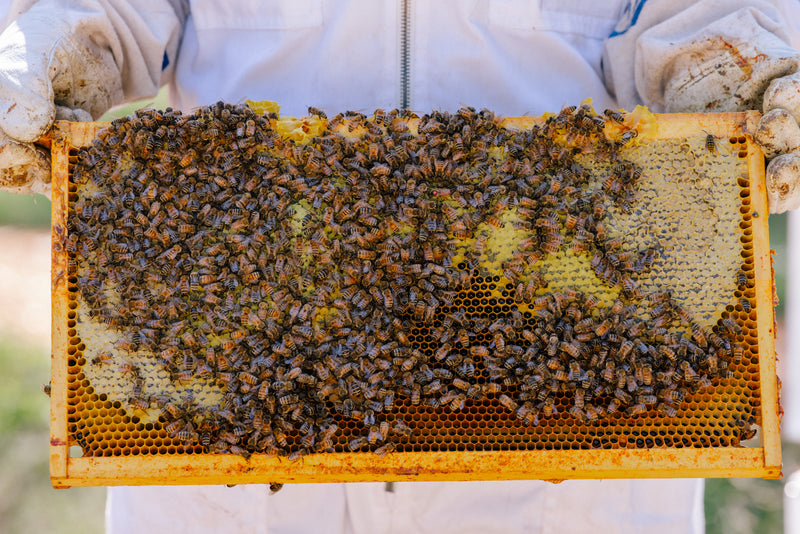
Why buy local honey?- how local honey could be healthier for you
Honey- that delicious natural sweetener we apply to our tea when we’re sick, our toast in the morning and even some specialty desserts. It is the product we go to when allergy season is in full effect. But where is the best place to purchase honey and how do you know you’re getting a natural product?
Honey is the by-product of a colony’s surrounding flowers. The oldest members of the hive, called the foragers, are responsible for locating and extracting pollen and nectar from nearby resources. The pollen, collected on the hindlegs of the bee, are used to feed the young while the nectar, collected through the proboscis (tongue-like structure) and temporarily stored in the honey stomach of a bee, is the main ingredient of honey. When a beekeeper has hives in your neighbourhood, the hive is collecting pollen and nectar from the flowers that surround you every day. If you have seasonal allergies, the flowers that surround you every day can sometimes be the allergen that is causing you problems. It is commonly thought that if you consume honey from your local beekeeper, the beekeeper that has hives in your neighbourhood, you consume small doses of the allergen which will in turn can help you during allergy season.
In addition, there has been issues with imported honey being substituted with ingredients such as corn or rice syrup. The product you are purchasing, in that case, is not necessarily containing the health benefits we seek from whole products. By buying local and knowing the beekeeper, you can ask questions about the honey. How is the honey extracted? Where are your hives located? By understanding where your honey comes from and understanding the honey extracting process, you will have a closer connection to the food you consume and understand how few steps the hive to jar process should really be.
Lastly, by supporting your local beekeeper, you are supporting your neighbour. The hard work they dedicate to ensuring their hives are healthy and thriving, can be seen in their product. The flavours of honey should be unique. When you have a chance, try sampling different honey: blackberry, blueberry, wildflower, fireweed. You should be able to note different tastes just like sampling a flight of beer. It is a chance to taste the flavours of your local community.
In the meantime, happy beekeeping and happy honey tasting!
